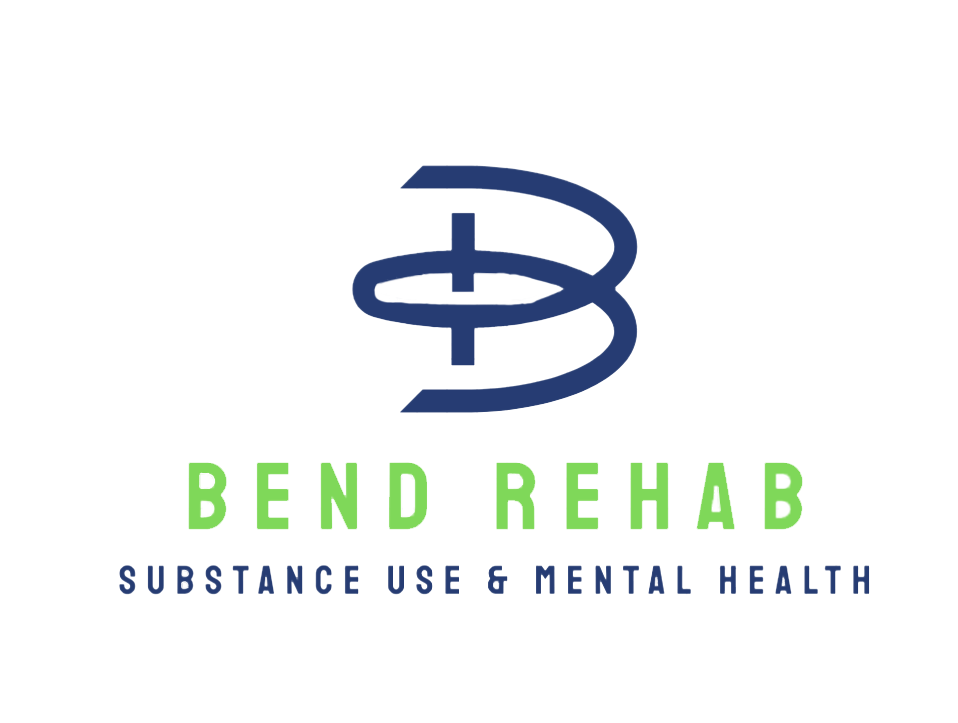Bend Outpatient Drug Rehabs
Dual diagnosis—when someone experiences both a mental health disorder and a substance use disorder simultaneously—is a complex and overwhelming challenge that affects many individuals. These interconnected conditions often require specialized care to address the unique needs of each person. At Bend outpatient drug rehabs, specialized programs are designed specifically to treat co-occurring conditions, offering a tailored and flexible approach to recovery that prioritizes both mental health and substance use treatment. Outpatient programs in Bend provide a supportive environment where individuals can access therapy, counseling, and medical care while maintaining their daily responsibilities, such as work or family life. These programs emphasize evidence-based practices, such as cognitive-behavioral therapy (CBT) and medication-assisted treatment (MAT), to deliver comprehensive care aimed at improving long-term outcomes.
What is Dual Diagnosis?
Dual diagnosis refers to the presence of both a mental health condition, such as depression, anxiety, PTSD, or bipolar disorder, alongside substance abuse or addiction. According to the National Institute on Drug Abuse (NIDA), nearly 50% of individuals with severe mental illnesses also struggle with substance use disorders.
This coexistence often creates a cycle where one condition exacerbates the other. For example:
- Anxiety may lead someone to abuse alcohol as a form of self-medication, using it to temporarily numb feelings of stress, worry, or fear. Over time, this coping mechanism can become a harmful cycle, increasing dependence and worsening both mental and physical health.
- Prolonged substance use can significantly alter brain chemistry, leading to changes in mood, behavior, and cognitive function. These changes can trigger new mental health conditions or worsen existing ones, making recovery and overall well-being even more challenging.
Because symptoms of these disorders overlap, diagnosing and treating both conditions simultaneously requires specialized care delivered by professionals trained in dual diagnosis treatment. Without targeted intervention, focusing on just one condition risks relapse or worsening health outcomes.
Why Choose Bend Outpatient Drug Rehabs for Dual Diagnosis Treatment?
Outpatient programs have become an excellent option for individuals seeking flexibility, affordability, and high-quality care in their recovery journey. These programs allow people to maintain their daily responsibilities, such as work, school, or family commitments, while still receiving the treatment they need. Bend outpatient drug rehabs stand out for their ability to provide comprehensive support, particularly for individuals dealing with dual diagnosis. By combining mental health care with substance use disorder treatment, these programs offer a well-rounded approach that addresses the root causes of addiction and promotes sustainable recovery.
1. Flexibility
Outpatient care provides individuals with the flexibility to continue managing their daily responsibilities, such as work, school, or family commitments, while receiving the treatment they need. Unlike inpatient programs, outpatient care allows patients to live at home and attend scheduled treatment sessions, making it easier to maintain a sense of normalcy. This balance ensures that recovery can be seamlessly integrated into their day-to-day lives, offering the support they need without completely disrupting their routine. It’s an effective option for those who require ongoing care but also need to stay connected to their personal and professional obligations.
2. Cost-Effectiveness
Compared to residential facilities, outpatient treatment tends to be a more budget-friendly option for individuals seeking help with substance abuse. Outpatient programs allow patients to receive therapy and support while living at home, which can significantly reduce costs. Additionally, many Bend outpatient drug rehabs accept a variety of insurance plans, helping to further alleviate the financial burden and making treatment more accessible for those in need. This flexibility allows individuals to focus on their recovery without the added stress of high expenses.
3. Community Engagement
Staying within your community while receiving treatment offers numerous benefits, including the crucial emotional support provided by family, friends, and other local connections. Being close to loved ones can create a sense of comfort and stability during what may be a challenging time. Additionally, outpatient rehabs often encourage the development of local peer-support networks through group therapy sessions and communal activities, where individuals can share experiences, build relationships, and find motivation from others on similar journeys. This combination of local support systems and professional care helps create a well-rounded approach to recovery.
4. Top-tier Services
Outpatient programs in Bend uphold a high standard of care, offering evidence-based practices specifically tailored to meet the needs of dual diagnosis patients—those dealing with both mental health challenges and substance use disorders. These programs are designed to address the complexity of dual diagnoses with a personalized approach, ensuring each individual receives expert, compassionate treatment that prioritizes their overall well-being. With flexible scheduling, outpatient care allows patients to continue managing work, school, or family responsibilities while actively participating in recovery. If you or someone close to you requires dual diagnosis treatment, outpatient care could be the key to balancing effective recovery with everyday commitments, providing the support needed for lasting change.
Navigating Dual Diagnosis Treatment in Bend
Finding the right outpatient program can feel overwhelming, especially with so many options available. To make the process easier and less stressful, it’s important to clarify your needs and goals first. Keep the following key considerations in mind as you search to ensure you find the best fit for your situation:
1. Accreditation
Look for facilities accredited by trusted organizations like The Joint Commission or CARF (Commission on Accreditation of Rehabilitation Facilities). These accreditations are awarded only to institutions that meet or exceed rigorous standards in areas such as patient care, safety protocols, and overall quality of services. Choosing an accredited facility ensures you or your loved ones will receive reliable, high-quality care from a team committed to excellence.
2. Specialized Dual Diagnosis Treatment
Not all rehabs are equipped to handle co-occurring disorders effectively, which can make finding the right program a critical step in the recovery process. Co-occurring disorders, also known as dual diagnosis, occur when someone experiences both a mental health condition and a substance use disorder simultaneously. To ensure the best chance of success, it’s essential to choose a program that specializes in dual diagnosis and employs experienced staff trained to address both issues. These programs use integrated treatment approaches, providing comprehensive care that treats the whole person and helps build a strong foundation for long-term recovery.
3. Evidence-Based Practices
Seek programs that integrate interventions proven to work, such as:
- Cognitive Behavioral Therapy (CBT): A structured and evidence-based framework designed to help individuals identify and change negative thought patterns and behaviors. It focuses on understanding the connection between thoughts, emotions, and actions, enabling people to develop healthier coping mechanisms and improve their overall mental well-being.
- Medication-Assisted Treatment (MAT): A comprehensive approach that combines the controlled use of FDA-approved medications with counseling and behavioral therapies to manage withdrawal symptoms, reduce cravings, and support long-term recovery from substance use disorders.
4. Individualized Treatment Plans
Recovery is a deeply personal experience, and no two journeys are the same. The best outpatient rehabs understand this and focus on creating customized treatment plans tailored to your unique needs. They take into account your specific conditions, lifestyle, and personal goals, ensuring that the approach is both effective and aligned with your path to healing. By offering flexible care and support, these programs empower individuals to regain control of their lives while maintaining their daily responsibilities.
5. Supportive Community
A sense of belonging can play a pivotal role in the recovery process, as it helps individuals feel supported and connected during their journey. When researching outpatient rehab options, take the time to check whether facilities prioritize creating a strong sense of community through programs like group therapy sessions, peer support groups, or ongoing alumni networks. These resources encourage individuals to share experiences, build relationships, and stay motivated throughout their recovery. By focusing on these factors, you’ll be better equipped to find an outpatient rehab in Bend that not only meets your unique needs but also fosters lasting connections and a supportive environment for long-term success.

The Role of Therapy in Dual Diagnosis Treatment
Therapy is a cornerstone of any effective dual diagnosis program, playing a crucial role in helping individuals address both mental health disorders and substance use issues. It bridges the gap between understanding the root causes of both conditions and offering practical, evidence-based solutions for sustainable recovery. By providing a safe space to explore underlying triggers and patterns, therapy empowers individuals to develop healthier coping mechanisms and build a stronger foundation for lasting change. Here are some commonly used therapies offered at Bend outpatient drug rehabs, tailored to meet the unique needs of each participant:
Cognitive Behavioral Therapy (CBT)
Cognitive Behavioral Therapy (CBT) focuses on identifying and addressing destructive thought patterns that often contribute to substance abuse. By recognizing these negative thought cycles, individuals can work on replacing them with healthier, more constructive coping mechanisms to manage stress and challenges. CBT is particularly effective for people dealing with co-occurring conditions such as anxiety, depression, or trauma-related disorders, as it helps them develop practical strategies to manage their emotions and behaviors more effectively. This evidence-based approach not only supports recovery from substance use but also promotes long-term emotional resilience and mental well-being.
Dialectical Behavior Therapy (DBT)
For individuals struggling with emotional regulation, self-harm, or intense feelings of distress, Dialectical Behavior Therapy (DBT) combines mindfulness techniques with evidence-based behavioral strategies to provide effective tools for managing challenging emotions. By focusing on skills like distress tolerance, emotional regulation, and interpersonal effectiveness, DBT empowers individuals to navigate difficult situations, reduce harmful behaviors, and improve their overall well-being.
Family Therapy
Substance abuse and mental health disorders often place significant strain on family relationships, creating tension, misunderstandings, and emotional distance. Family therapy plays a crucial role in addressing these dynamics, offering a safe space for family members to express their feelings, identify patterns, and work towards healthier interactions. By fostering understanding and improving communication, family therapy helps rebuild trust and creates a foundation of long-term support for the individual in recovery. Additionally, these therapy sessions enable individuals and their families to strengthen emotional resilience, learn effective coping strategies, and develop tools to prevent relapse, ensuring a collaborative approach to sustained recovery and overall well-being.
Why Aftercare Matters
Treatment doesn’t end when outpatient sessions conclude. Recovery is a lifelong journey, and aftercare plays a critical role in maintaining progress and preventing relapse. Aftercare is designed to provide ongoing support, guidance, and resources to help individuals sustain their recovery over the long term. Bend outpatient rehabs often offer comprehensive aftercare services, such as support groups, continued therapy sessions, relapse prevention planning, and access to community resources, ensuring that individuals have the tools they need to navigate challenges and stay on track.
1. Alumni Programs
These programs help individuals stay connected to a supportive network of fellow graduates, fostering a sense of community and collaboration. They provide ongoing peer support, shared experiences, and access to valuable resources such as workshops, mentoring opportunities, and professional development tools to ensure continued growth and success.
2. Sober Living Homes
For individuals seeking stable housing during early recovery, sober living homes offer a supportive and structured environment where sobriety is the top priority. These homes provide a safe space free from distractions or triggers, allowing residents to focus on building healthy habits, establishing routines, and developing the skills needed for long-term recovery. With shared responsibilities and peer encouragement, sober living homes play a vital role in bridging the gap between treatment and independent living.
3. Peer Support Groups
Organizations like Alcoholics Anonymous (AA) and Narcotics Anonymous (NA) provide regular meetings designed to support individuals on their recovery journey. These gatherings create a safe space where participants can share their experiences, insights, and struggles while receiving encouragement and accountability from others who understand their challenges. By fostering a sense of community and mutual support, these programs play a key role in helping individuals stay committed to their recovery. This ongoing support system ensures that participants feel empowered to maintain their progress, develop healthier coping strategies, and avoid relapse as they navigate the complexities of a substance-free life.
Conclusion
Navigating dual diagnosis treatment requires patience, commitment, and the right resources. When mental health challenges and substance use disorders intersect, finding the right care can feel overwhelming, but support is available. If you’re searching for exceptional treatment options, Bend outpatient drug rehabs provide the comprehensive and personalized care you need to move forward. These facilities offer specialized dual diagnosis programs designed to address both conditions simultaneously, ensuring no aspect of your recovery is overlooked. With flexible therapy solutions tailored to fit your schedule, compassionate professionals dedicated to your success, and supportive aftercare services to keep you on track, these centers are equipped to help you reclaim your health, stability, and future. For more help and resources please reach out to us by calling 1 (541) 802-7214 or clicking Bend Rehab. Recovery is always possible, no matter how difficult the journey may seem. Take that first step today by reaching out to a trusted rehab center in Bend—you deserve a brighter tomorrow.




